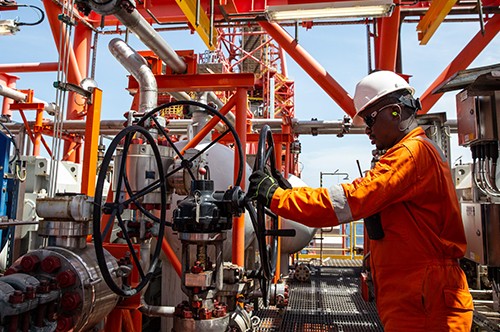Nigeria’s petroleum downstream market has recorded a historic turnaround, with fuel smuggling across the country’s borders reduced by 35%, according to the Depot and Petroleum Products Marketers Association of Nigeria (DAPPMAN).
In a statement signed by the Executive Secretary, Olufemi Adewole, DAPPMAN credited this milestone to the strict anti-smuggling measures implemented by the Nigerian Midstream and Downstream Petroleum Regulatory Authority (NMDPRA).
It is a seminal step towards putting an end to Nigeria’s long-time fuel diversion and scarcity, as well as price volatility issues that have long afflicted its petroleum downstream market.
Beyond this recent success, Nigeria has been adopting structural reforms in a way to enhance transparency as well as operational efficiencies in the downstream market.
Adoption of the Automated Downstream System by the NMDPRA is one key initiative that enables real-time monitoring of fuel supply. This oversight has helped curb fuel hoarding and black marketing while ensuring timely delivery to customers. Combined with a strict zero-tolerance against adulterated fuel products, the system has led to a 98% compliance rate at major depots.
In addition, market-led reforms driven by the Petroleum Industry Act (PIA) are opening up market opportunities in the downstream market. By giving licenses to modular refineries with clear regulation, Nigeria has driven private sector engagement in refining and distribution, thus improving local refining capacity as well as petroleum product imports.
This approach is reducing reliance on fuel imports, improving local refining capacity and creating jobs in communities surrounding these facilities. At full capacity, the modular refineries are expected to meet domestic fuel needs, improve energy security and avert further product smuggling across borders by limiting the availability of products for diversion.
A collaborative approach among key stakeholders, including the NMDPRA, Nigerian National Petroleum Company Limited (NNPCL), security agencies, as well as proprietors of depots, has encouraged collective efforts in combatting smuggling and scarcity.
Joint task teams and improved information sharing have enabled coordinated efforts along points of smuggling, closure of black market channels, and security of vital fuel routes. These efforts have helped more orderly fuel supply nationwide, reversing years of perennial scarcity and long queues.
By undertaking clear communication with stakeholders, as driven by DAPPMAN, NMDPRA allows policy regulation in alignment with trends within the market in order to facilitate ease of compliance while establishing confidence in market players and consumers.
Also, such solutions are moving the sector closer towards self-reliance and long-term sustainability.
Still, as DAPPMAN emphasised, there is a need for continuous stakeholder collaboration to sustain the gains achieved, fully deregulate the sector, and attract fresh investments for innovation and infrastructure expansion.
Ongoing support for PIA implementation, robust enforcement of fuel quality standards, and the deepening of technological monitoring can drive the sector towards greater competitiveness, reducing the vulnerabilities that have historically enabled smuggling and inefficiencies.
As Nigeria aims for economic growth, a resilient downstream sector, built on these ongoing solutions, will be vital in ensuring affordable energy access for all while positioning the country as a hub for refined petroleum products in the region.
Nigeria's petroleum downstream market has seen a historic transformation with a 35% reduction in fuel smuggling, as reported by the Depot and Petroleum Products Marketers Association of Nigeria (DAPPMAN). This achievement is credited to strict anti-smuggling measures by the Nigerian Midstream and Downstream Petroleum Regulatory Authority (NMDPRA), which mark a significant step towards addressing long-standing issues of fuel diversion, scarcity, and price volatility.
Structural reforms, such as the adoption of the Automated Downstream System for real-time fuel supply monitoring and compliance initiatives, have improved transparency and operational efficiency in the market. The Petroleum Industry Act (PIA) has also facilitated market opportunities and private sector engagement by licensing modular refineries, thus enhancing local refining capacity and reducing dependency on imports.
Collaborative efforts among stakeholders, including security agencies and the Nigerian National Petroleum Company Limited (NNPCL), have been key in combating smuggling, securing fuel routes, and ensuring timely fuel supply nationwide. Continuous collaboration, robust enforcement of quality standards, and the deepening of technological monitoring are essential for sustaining these gains and driving further competitiveness.
Ultimately, these efforts are integral to Nigeria's economic growth, aiming for a resilient downstream sector that provides affordable energy access and positions the country as a regional hub for refined petroleum products. DAPPMAN emphasizes the need for ongoing stakeholder collaboration, sector deregulation, and investment in innovation and infrastructure to maintain progress and achieve long-term sustainability.






